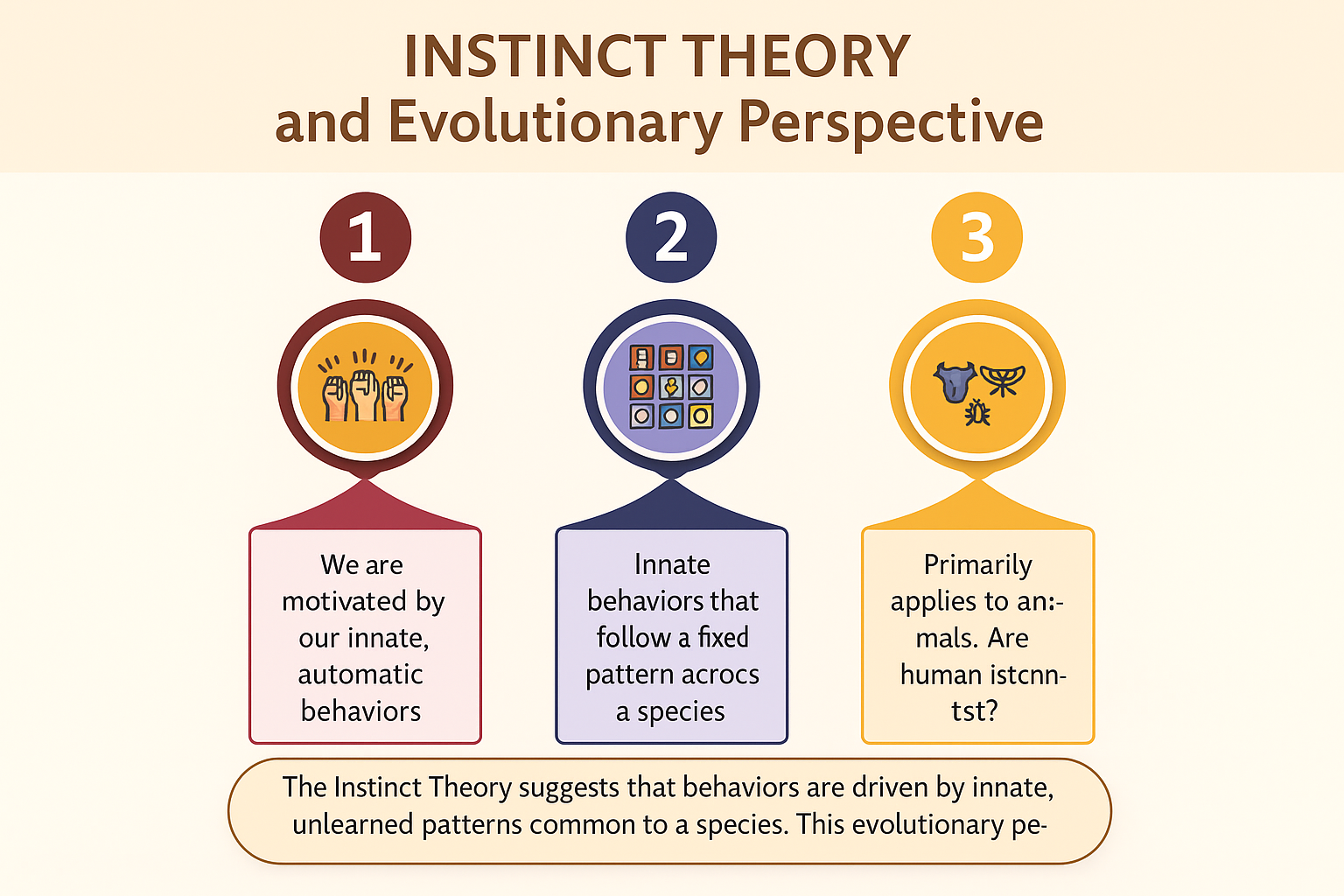Instinct Theory and Evolutionary Perspective: Understanding Innate Human Behaviors
In the realm of psychology and evolutionary biology, the Instinct Theory proposes that many of our behaviors are not learned but rather innate and biologically programmed. This theory suggests that we are often motivated to act based on instincts—automatic, unlearned behaviors that occur in response to specific stimuli.
The Evolutionary Perspective complements this view by asserting that behaviors have evolved over time because they are advantageous for survival. It underscores that these patterns are species-wide, meaning they appear in the same way across all members of a species.
📊 Key Points of the Theory
| # | Key Point | Description |
|---|---|---|
| 1 | Innate Behaviors | We are motivated by automatic, inborn behaviors that require no learning. |
| 2 | Fixed Patterns | These behaviors follow a predictable pattern across a species, indicating a genetic basis. |
| 3 | Applicability | While most evident in animals, the theory raises questions about the existence of human instincts. |
🔬 Biological Examples
Rooting reflex in infants: a newborn turns its head when its cheek is stroked—an instinct to feed.
Salmon migration upstream to spawn.
Maternal behavior in mammals without prior learning.
🩺 Clinical & USMLE Relevance
On exams like the USMLE, this theory often appears in questions about primitive reflexes or evolutionary psychology. For example, recognizing the Babinski reflex in infants as a normal developmental stage but pathological in adults can connect instinctual behavior with neurological assessment.
🧪 Final Thoughts
While Instinct Theory is more broadly applied to animal behavior, it serves as a vital entry point to understanding the biological basis of human actions. It also opens up deeper inquiries into how much of our behavior is learned versus hardwired.
Frequently Asked Questions (FAQs)
-
Aim for 4-6 focused hours, ensuring you incorporate breaks to avoid burnout.
-
Practice mindfulness techniques, take practice exams under realistic conditions, and maintain a balanced lifestyle.
-
Set short-term goals, seek support from mentors, and reward yourself for small achievements.
-
Regular exercise improves focus, reduces stress, and enhances overall mental clarity.
-
KOTC offers personalized learning tools, gamification features, and adaptive question banks to help students stay on track without burnout.


